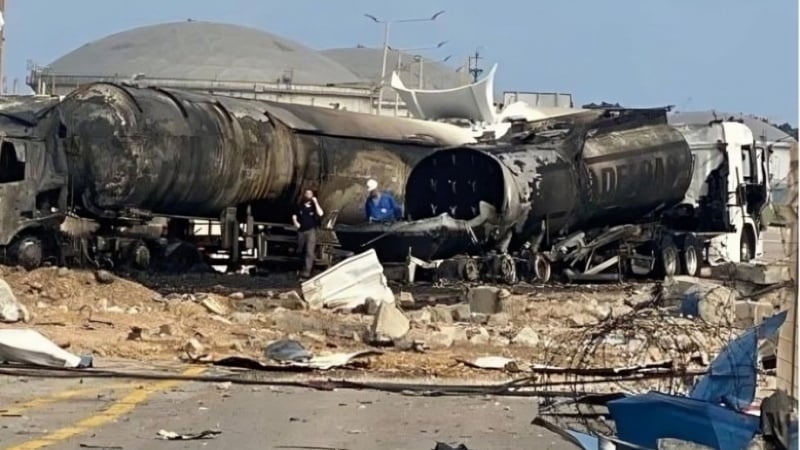Why Iran targeted Ashdod and Haifa refineries in Occupied Territories?
-

Why Iran targeted Ashdod and Haifa refineries in Occupied Territories?
Pars Today – The Ashdod refinery remains out of service due to technical failures, and the Haifa refinery also remains offline as a result of boiler damage caused by an Iranian missile strike.
Ashdod refinery, Israel’s second-largest, has been experiencing ongoing technical issues and is expected to remain out of operation for at least another week. Repair work began on June 15 and was scheduled to be completed by July 4, but as of now, it is still offline. According to Pars Today, citing Kayhan, this disruption has caused losses estimated between $13 and $18 million. The company has announced that it has resorted to fuel imports to compensate for the interruption.
Meanwhile, the Haifa refinery, which supplies two-thirds of Israel’s fuel needs, remains inactive due to boiler damage resulting from an Iranian missile attack.
The Director-General of Israel's ministry of energy confirmed that gasoline production in Israel dropped to zero following the Iranian strike on the Haifa refinery.
The Palestine Studies Channel raised the question: Why did Iranian ballistic missiles target Israel’s largest refinery? It explained that the Bazan Group refinery—also known as the Haifa Refinery—is one of Israel’s most critical oil and infrastructure facilities, located in the coastal city of Haifa in northern Israel. This refinery is considered a strategic target due to its vital role in supplying energy, supporting Israel's economy, and maintaining military security, which is why it was struck by Iranian missiles during the attacks.
The Bazan refinery is owned by the Bazan Group, a subsidiary of the Israel Corporation, and is controlled by the Ofer Brothers Group—one of Israel’s largest industrial holdings. Notably, over the past two years, several commercial ships owned by the Ofer Brothers have been targeted by resistance forces in the region.
The Bazan complex includes refining units, fuel storage tanks, and advanced petrochemical facilities. It is also linked to pipelines and fuel transportation systems.
Due to its strategic and economic importance, the Bazan refinery became a key target in Iran’s missile strikes, particularly during the recent confrontations in June 2025.
The main reasons for targeting the refinery include:
Crippling Israel’s economy: Given Israel’s heavy dependence on the Bazan refinery for its fuel supply, attacking this facility could cause serious economic disruption—fuel shortages, price hikes, and breakdowns in transportation and industry.
Weakening military capability: Since the Bazan refinery supplies jet fuel to the Israeli Air Force, disabling it could temporarily reduce Israel’s operational military capacity
MG/ME


